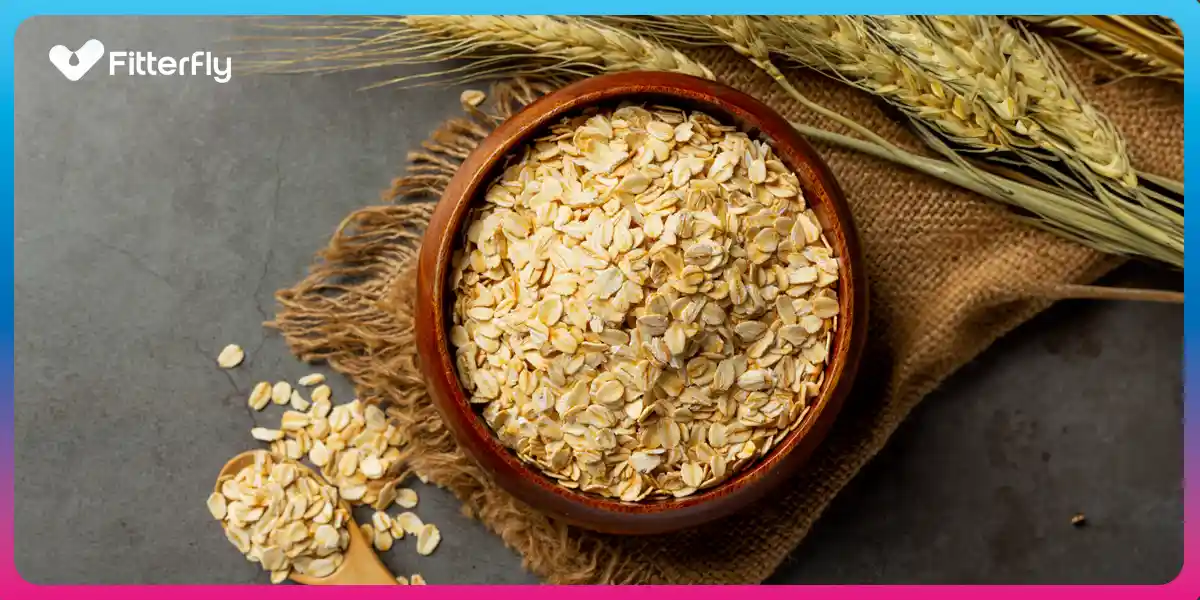Breaking Down Non-Surgical Weight Loss Methods | Expert Panel

Obesity is increasingly being recognised as a threat to public health and national economies globally. According to the fifth round of the National Family Health Survey (NFHS, 2019–21), 40% of women and 12% of men in India are abdominally obese. Moreover, 49.3% of women in the 30–39 age category and 56.7% of women in the 40–49 age category fall in the obese group.
In response to the growing urgency of the obesity crisis, both pharmaceutical companies and healthtech platforms are redoubling their efforts to develop new groundbreaking strategies for effective non surgical weight loss options.
Fitterfly recently hosted a riveting panel discussion that delved into cutting-edge, non-surgical weight loss strategies. The discourse was led by Dr. Chitra Selvan, an expert in endocrinology with M.S. Ramaiah Medical College with a special interest in patient communications, Ms. Shilpa Joshi, the dynamic VP of Metabolic Nutrition at Fitterfly, and Ms. Neha Verma, who heads the Department of Psychology & Wellbeing at Fitterfly.
Dr. Neelesh Bhandari, Vice President of Physician Partnerships at Fitterfly, moderated the session. Below are the key takeaways from the panel discussion on the best approaches to non surgical weight loss.
Significance of Nutrition in Weight Management Strategies
Ms. Shilpa Joshi presented the etiology of obesity due to caloric imbalance, wherein caloric intake surpasses caloric expenditure. She further noted a paradigmatic shift in nutritional science concerning macronutrient composition.
Previously, lipids were predominantly implicated in adverse dietary outcomes; however, current evidence increasingly implicates carbohydrates for their caloric density.

Fig 1: Ms. Shilpa Joshi (India’s leading dietitian and diabetes educator)
Ms. Shilpa Joshi also stressed that any type of diet, when followed long-term, leads to non surgical weight loss. This is evident from a Frank M. Sacks et al. study, suggesting reduced-calorie diets lead to clinically meaningful weight loss, disregarding macronutrient percentages in them (N Engl J Med 2009; 360:859-873).
On the contrary, fad diets (keto, low-fat, or low-carb) indicating drastic weight loss are unsustainable. So, weight loss is a function of the diet being followed, not the type of diet being followed. Hypocaloric, well-balanced diet is sustainable and has stood the test of time.
Role of Medications in Facilitating Weight Loss
Dr. Chitra Selvan emphasised that obesity is a chronic medical condition requiring sustained care with or without medications. The foundation of obesity management is behavioural modification. However, providing the tools for behaviour modifications can be challenging in clinical practice due to time constraints, the volume of patient load and the lack of training in behavioural science of medical professionals in India.


Fig 2: Dr. Chitra Selvan (Endocrinologist, Associate Professor, Ramaiah Medical College)
Recently, pharmaceutical companies have introduced a novel class of GLP-1R agonists (glucagon-like peptide-1 receptor agonists) that are effective in appetite suppression. In India, these medications are approved for use in patients with type 2 diabetes who also have obesity but are not authorised solely for appetite suppression in cases of obesity.
Additionally, these drugs carry a potential risk of gastrointestinal side effects. They can rarely cause an increased risk of pancreatitis and worsening of retinopathy. Most studies involving pharmacotherapy for obesity have shown gradual weight regain once the medications are discontinued.
Emerging Drugs for Obesity Management
Medical bodies have approved Orlistat for non surgical treatment for weight loss. It blocks the absorption of fats from small intestines and, thus, causes calorie deficit.
Common side effects of Orlistat include bowel incontinence, oily spotting, increased urge to pass bowels, and bloating. SGLT2 inhibitors and Metformin have also shown promising results in attaining weight loss among obese T2DM individuals.
Newer obesity drugs in the pipeline include dual agonists consisting of GLP and GIP (glucose-dependent insulinotropic polypeptide) agonists.
A study on 2539 individuals resulted in an average weight loss of 19.5% and 20.9% with 10-mg and 15-mg doses of tirzepatide among participants compared to 3.1% with placebo. Pharma companies are also conducting trials on triple agents, consisting of GLP, GIP, and glucagon molecules, to manage obesity.
Role of Behaviour Therapy in Weight Loss
Behavioural therapies offer a non-pharmacological approach to non-surgical weight loss by conditioning the mind to adopt healthier habits. This conditioning is a gradual process that requires consistent repetition of specific behaviours. Ms. Neha Verma advocates for Intensive Behaviour Therapy (IBT) as a comprehensive strategy for weight management.
![Ms. Neha Verma [Clinical Psychologist (M. Phil), RCI Licensed Practitioner, Mumbai]](https://www.fitterfly.com/blog/wp-content/uploads/2023/10/Img-4-Best-Approaches-to-Non-Surgical-Weight-Loss-copy-1.webp)
![Ms. Neha Verma [Clinical Psychologist (M. Phil), RCI Licensed Practitioner, Mumbai]](https://www.fitterfly.com/blog/wp-content/uploads/2023/10/Img-4-Best-Approaches-to-Non-Surgical-Weight-Loss-copy-1.webp)
Fig 3: Ms. Neha Verma [Clinical Psychologist (M. Phil), RCI Licensed Practitioner, Mumbai]
IBT emphasises the importance of prioritising health and effectively managing time. It provides a structured routine that encourages consistency and motivation in adhering to dietary and exercise plans.
Additionally, IBT sets realistic, digitally trackable weight loss goals to measure progress objectively. Alongside IBT, Mindfulness-Based Interventions are recommended to enhance cognitive control, thereby improving focus, attention, and concentration.
Multidisciplinary Management of Weight Loss
A growing consensus among medical practitioners underscores the efficacy of a multidisciplinary approach to obesity management. Utilising Intensive Behavior Therapy (IBT), this collaborative model can optimise outcomes for various chronic medical conditions, including obesity, diabetes mellitus, hypertension, hepatic disorders, and cardiovascular diseases.
Nutritionists are responsible for prescribing evidence-based dietary regimens for weight reduction, while psychologists contribute cognitive-behavioural strategies to ensure adherence to these regimens.
The synergistic collaboration between nutritionists and psychologists has resulted in superior outcomes in non-surgical weight loss interventions, largely attributable to enhanced long-term mental fortitude for dietary adherence.
How Does Fitterfly Help in Achieving Weight Loss among Members?
Dr. Neelesh Bhandari stressed that Fitterfly’s comprehensive approach to obesity management is rooted in three essential pillars: Nutrition, Fitness, and Behavior Conditioning. Upon physician referral, patients experience a seamless onboarding process that sets the stage for effective treatment.
A multidisciplinary team consisting of a nutritionist, physiotherapist, and behavioural therapist—often referred to as a ‘success coach’—then takes the lead for the best non surgical weight loss procedures.
The team of coaches conducts regular assessments and provides ongoing support to ensure the patient stays on track. Crucially, the team also maintains open lines of communication with the referring physician, providing timely feedback on the patient’s progress.
In this way, Fitterfly creates a collaborative environment where physicians are well-supported by a team of experts, all focused on achieving optimal outcomes in obesity management.
These were the focal points of the panel discussion on Best Approaches to Non-Surgical Weight Loss. You can watch the complete discussion in the video below.
About Us
Fitterfly is on a mission to fuel the global metabolic health revolution through the power of Digital Therapeutics (DTx). We partner with physicians to deliver advanced customised digital therapeutics solutions aimed at enhancing the health outcomes of their patients.
By partnering with Fitterfly, you can save time in your clinics, ensure continuity of care for your patients, get research publications and also enhance your revenue. To know more, please fill out the form below or call us at 080-47093933.
This blog provides general information for educational and informational purposes only and shouldn't be seen as professional advice.
Want to know how can Fitterfly enhance your practice and improve patient outcomes?























